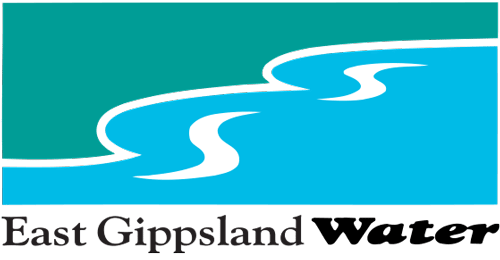3 November 2023
As part of East Gippsland Water’s commitment to environmental sustainability, the water corporation has entered into a contract with Gippsland Regional Organics to recycle biosolids from their water recycling facilities across East Gippsland to produce compost products.
East Gippsland Water Managing Director Steve McKenzie said that this is a first for the corporation and is one of many environmental projects that we are working on.
“We produce around 1,000 tonnes of biosolids each year across our 11 Water Recycling Plants and facilities, and store our biosolids across three locations; Bruces Track between Swan Reach and Kalimna West, Newmerella towards Corringle and Paynesville towards Forge Creek.
“It is great to see our biosolids being put to use and turned into organic compost for use in commercial agricultural activities.
“Biosolids are the solid material left over from the waste water recycling process. The biosolids are rich in organic matter and nutrients such as phosphorus and nitrogen. It makes an excellent organic compost, enriching the soil, reducing the use of chemical fertilizers and reducing materials to landfill.”
The agreement with Gippsland Regional Organics allows for around 1,300 tonnes of biosolids, equivalent to the weight of approximately 2,000 cows or four Boeing 747’s, to be transported each year for recycling to the Gippsland Regional Organics facility, east of Sale.
Gippsland Water Managing Director Sarah Cumming said Gippsland Regional Organics treats around 180,000 tonnes of organic material per annum and produces around 60,000 tonnes of Australian certified compost each year.
“We are thrilled to enter into this agreement with East Gippsland Water to create certified compost from their biosolids.
“We are fortunate to be able to collaborate with other organisations, like East Gippsland Water, and look forward to working with them to improve sustainability and contribute to a healthier tomorrow.
“The work at Gippsland Regional Organics feeds into our circular economy model by taking all our biosolids and waste from other facilities and transforming it for further use in a sustainable way.”
East Gippsland Water is also investigating a number of other local biosolids reuse to land options that may benefit farmers across East Gippsland. These are in the very early stages with approvals currently being sought from the Environment Protection Authority (EPA) in Victoria.
The first collection of biosolids from the Bruces Track Storage Facility took place last week.
Ends
Image shows the first collection of biosolids from East Gippsland Water’s Bruces Track Storage Facility last week.

